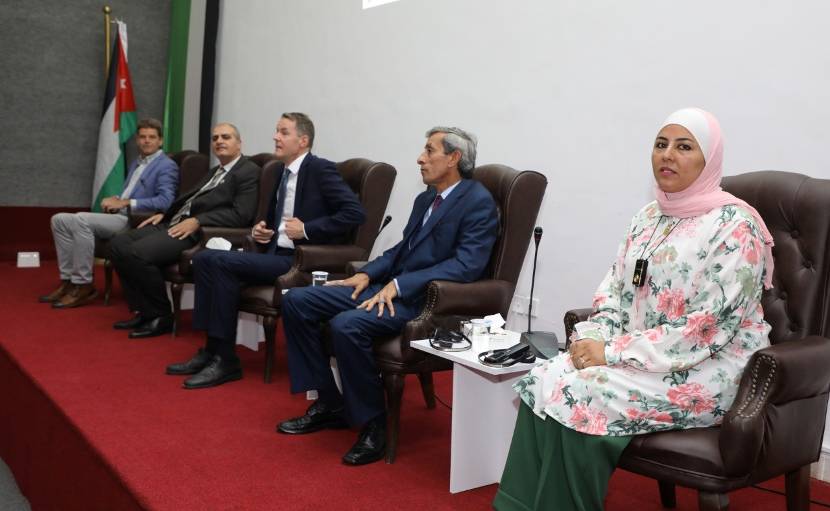Jordan: Hub of the MENA region for climate resilient seeds
Improved resilient seed varieties suitable local conditions are essential for farmers to sustainably produce healthy food. This is especially the case in the harsh water scarce Jordanian climate, affected by climate change. Some Dutch companies such as Bakker Brothers, Enza Zaden and Rijk Zwaan have with their partners been shifting from trade to investment creating knowledge intensive jobs. An enabling policy environment gives them the confidence to make this move. In this post the agricultural team in Amman shares some positive steps, including new seed regulations.
Realizing the importance of the seed sector, Jordan’s Ministry of Agriculture is keen to keep the instructions and procedures for registration, production and trade of vegetable varieties up to date. They work to keep procedures aligned with international good practice and the interest of farmers, consumers and stakeholders in the seed sector.
Improved seed varieties suitable to local agro-ecological conditions and resilient climate change are essential for a sustainable agricultural sector contributing to food security and gainful employment. The Netherlands supports seed companies to move from trade to investment and undertake research and development work in Jordan as a seed hub for the MENA region. Seed registration and plant variety protection (PVP) are important enablers for such investments and to provide farmers access to improved seeds.
For this, the Dutch Ministry of Agriculture, Nature and Food Quality supported a multi-stakeholder roundtable on “Plant Breeder’s Rights (PBR) in Jordan and Enforcement of the Rights”. This was the product of cooperation between Naktuinbouw, Jordan Ministry of Agriculture (MoA) and the National Agricultural Research Center (NARC) and the Anti-Infringement Bureau (AIB) for Intellectual Property Rights on Plant Material.
Agriculture Counsellor Dr. Melle Leenstra opening remarks video
The roundtable facilitates fruitful knowledge exchange and dynamic discussions between the private sector - local and international seed companies- and the public sector represented by MoA and NARC. The agenda covered the following topics:
- How to protect a variety in Jordan
- How governments can create an enabling environment for breeders to ensure their rights
- Challenges that seed companies and seed importers encounter

The roundtable was preceded by a 2-days training workshop on PVP and seed registration, conducted by Naktuinbouw for MoA & NARC PVP department officials.
This event fits into a broader cooperation and consultation by the Jordanian Ministry of Agriculture with partners on seed as part of broader agricultural policies.
Early this year, seed potatoes importers faced challenges with their shipments, where many consignments were rejected due to unnecessary lab tests that were conducted without taking into consideration timing sensitivity. This caused the samples to misrepresent the shipment the were taken from giving negative results. As a consequence, the shipments were rejected from finding their way to farmers’ fields.
However, the new instructions issued in June 2022, have this requirement changed:
- Lab tests are no longer needed if a phyto-sanitary certificate is provided with the consignment from the country of origin based on the information required by the Jordanian instructions.
- Visual tests are still needed, although samples need to be collected and sent to Amman to be tested at the National Agriculture Research Center (NARC), and results will be out on the same day.
For more on the regulations for seed registration, production and trade click here for seed registration instructions.